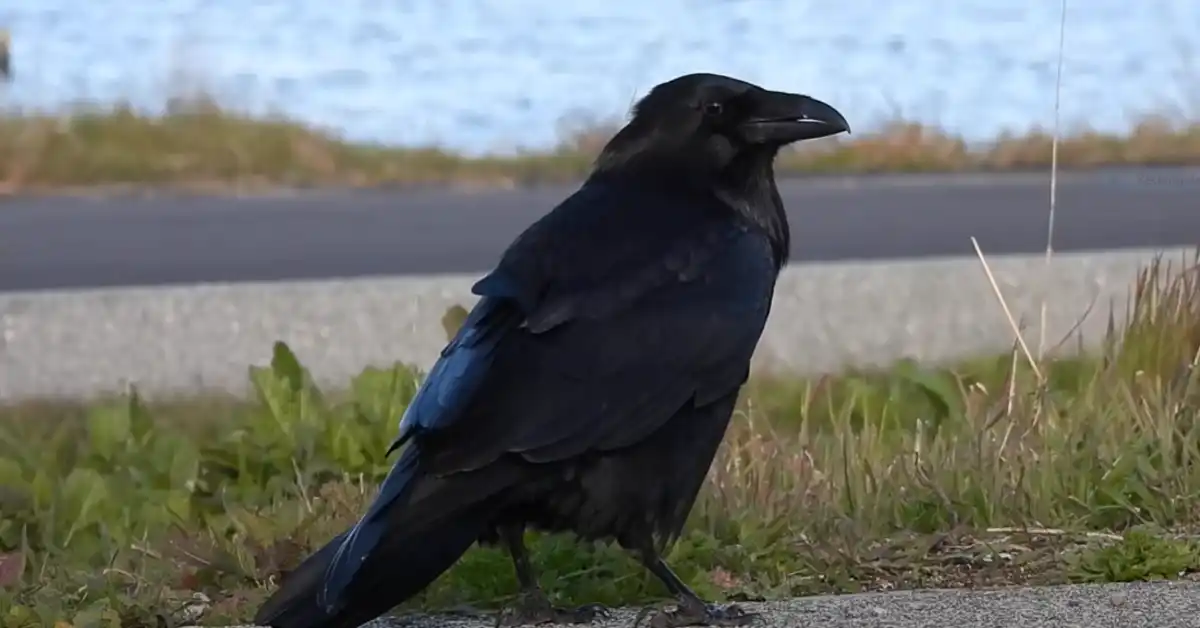Have you ever wondered if ravens can be pets? These mysterious birds are known for their intelligence and striking appearance, making many people curious about what it would be like to have one at home.
But before you decide to bring a raven into your life, it’s important to understand what caring for one really means. You’ll discover the truth about keeping ravens as pets, what challenges you might face, and whether it’s the right choice for you.
Keep reading to find out if a raven could truly become your feathered friend.
Short Answer: Ravens are highly intelligent and fascinating, but they don’t make good pets. They’re wild birds with complex needs best met in nature.
Table of Contents
Ravens As Pets
Ravens are very smart birds. They can solve puzzles and use tools. They enjoy playing and exploring. Ravens can remember faces and sounds. They often mimic human speech. These birds need lots of mental stimulation. Without it, they may become bored or upset. They form strong bonds with their owners. Ravens also show emotions like joy and sadness. Their intelligence makes them unique pets, but also demanding.
Many places have laws about owning ravens. Some require permits or licenses. Others may ban keeping wild birds. Always check local rules before getting a raven. Illegal keeping can lead to fines or bird confiscation. It is important to respect wildlife protection laws. Owning a raven without permission is risky.
Ravens can live up to 20 years or more in captivity. They need daily care and attention. Food, space, and social interaction are vital. This is a long-term commitment. Owners must be ready to care for them for many years. Ravens need patience and time to thrive.
Housing And Environment
Ravens need a large space to live and move freely. A big cage or aviary is best. It should be at least 8 feet tall and wide enough for flying short distances. Ravens love to climb and explore, so include perches, ropes, and branches.
Keep their space clean and safe. Use materials that are non-toxic and strong enough to hold their weight. Ravens are smart and can escape through small gaps, so check for secure locks and tight mesh.
- Toys: Provide puzzle feeders and objects to peck.
- Interaction: Spend time talking and playing with them.
- Variety: Change toys regularly to keep their mind active.
Safety is very important. Keep them away from toxic plants and chemicals. Avoid places where they can meet predatorslike cats or dogs. Always supervise outdoor time to prevent escapes or injuries.
Feeding And Nutrition
Ravens need a balanced diet that includes protein, fruits, and vegetables. They enjoy meats like cooked chicken, eggs, and fish. Fresh fruits such as apples and berries provide vitamins. Vegetables like carrots and peas add fiber and nutrients.
Certain foods can harm ravens. Avoid chocolate, caffeine, and salty snacks. Also, do not feed them avocado, onions, or raw beans. These can cause illness or even death.
- Feed ravens once or twice a day.
- Offer fresh food in the morning and remove leftovers by evening.
- Always provide clean water with meals.
- Keep feeding times consistent to build trust.
Training And Socialization
Training ravens requires patience and consistency to build trust and good behavior. Socializing them early helps them adjust well to human interaction and a home environment.
Building Trust With Ravens
Spending time near ravens helps build trust. Speak softly and offer treats like nuts or fruit. Let them come to you instead of forcing contact. Patience is key for a strong bond.
Basic Commands And Tricks
- Start with simple commands like “come” or “stay.”
- Use treats as rewards to encourage good behavior.
- Repeat training often but keep sessions short.
- Teach tricks like fetching small objects or waving.
Handling Aggression And Stress
Ravens may show aggression if scared or stressed. Look for signs like hissing or biting. Give them space and calm surroundings. Use gentle voice tones to soothe them.
Health Care
Ravens can face several health issues, like respiratory infections, mites, and nutritional deficiencies. Signs of illness include changes in behavior, feathers, or appetite. Watching your raven closely helps catch problems early.
Finding a good avian veterinarian is key. Birds need vets who know their unique needs. Ask local pet shops or bird clubs for recommendations. Regular check-ups keep your raven healthy.
Preventive care includes a balanced diet, clean water, and a safe cage. Regular cage cleaning stops germs. Provide toys and mental stimulation to prevent stress. Vaccinations and parasite control may be needed too.
Challenges Of Keeping Ravens
Ravens are very noisy pets. They can make loud calls that last for minutes. This noise may disturb neighbors or family members. They also create a lot of mess. Food scraps and feathers need constant cleaning. Their cages must be cleaned often to avoid bad smells.
Ravens need lots of time and attention. These birds are very smart and curious. They get bored easily without toys or interaction. Daily playtime and mental challenges are important. Without care, ravens can become destructive or stressed.
Many places have laws about keeping ravens. Some require permits or forbid them as pets. Ethical concerns also exist. Ravens belong in the wild, where they can fly free. Captive ravens may suffer from limited space and lack of natural activities.
Benefits Of Having Ravens
Ravens form strong emotional bonds with their owners. They can recognize faces and show affection. This connection makes them feel like a real family member. Their loyalty is surprising and heartwarming. Spending time with a raven can lift your mood and reduce stress.
Ravens are very smart. They learn tricks, solve puzzles, and remember tasks. Keeping a raven challenges your mind and keeps you active. Their cleverness creates fun moments and deepens your relationship. Training a raven requires patience but rewards with joy.
Having a raven as a pet is a unique experience. They are rare pets that stand out from common animals. Ravens have a mysterious and majestic presence. Their sounds and movements are interesting to watch. Caring for a raven gives you stories to share and special memories.
Why is it illegal to own a raven?
Owning a raven is illegal in the U.S. because they’re protected under the Migratory Bird Treaty Act. In simple terms, ravens belong to nature, not cages. They are wild birds with complex needs, and the law steps in to keep them safe.
Short answer: It’s illegal to own a raven because they’re protected wild birds under federal law.
I remember once spotting a raven perched on a telephone pole during a road trip in the desert. The bird looked so free, wings spread wide against the sky. In that moment, I realized no cage could ever match that kind of freedom.
- Ravens are protected under the Migratory Bird Treaty Act.
- Keeping one without permits can lead to heavy fines.
- They thrive best in the wild, not in captivity.
Can ravens be pets in California?
In California, the rules are even stricter. You can’t keep a raven as a pet unless you have a special permit for education or rehabilitation. Even then, it’s not the same as “owning” one. For everyday folks like us, the answer is a clear no.
Short answer: No, ravens cannot be kept as pets in California without special permits.
I once visited a wildlife rescue center in California where a raven was being rehabilitated. The caretakers said it was only temporary, and the goal was always to release it back to the wild. That story stuck with me—it showed me that ravens aren’t pets, they’re guests of the sky.
- California law prohibits owning ravens as pets.
- Only licensed rehabbers or educators may keep them.
- Pet ownership is not allowed for the general public.
Frequently Asked Questions
Can Ravens Be Kept As Pets?
Ravens are intelligent but challenging to keep as pets. They need lots of space and mental stimulation.
What Do Ravens Eat As Pets?
Ravens eat a varied diet. Fruits, vegetables, nuts, and meat. They need a balanced diet.
How Long Do Pet Ravens Live?
Ravens can live 10 to 15 years in captivity. Some even longer with proper care.
Are Ravens Legal To Own As Pets?
Pet laws vary by location. Check local regulations before getting a raven. Permits may be needed.
Do Ravens Need Special Care As Pets?
Yes, they need lots of attention, enrichment, and space. Social interaction is important for their well-being.
Conclusion
Ravens are smart and social birds, but they need special care. They do not act like common pets such as cats or dogs. Keeping a raven requires time, space, and patience. They can bond with people but also need freedom to fly.
Owning one is a big responsibility and not for everyone. Think carefully before deciding to keep a raven as a pet. They are amazing creatures, best respected in the wild or with expert care. Choose what is best for you and the raven’s well-being.
Also Read: When Do Crows Have Babies: Essential Facts You Need to Know

My name is David, and I studied Biology at the University of Scranton. My academic background gave me a strong foundation in ecology, evolution, and wildlife sciences. Over the years, I have focused my research on birds, exploring their behavior, migration, and role in ecosystems. I enjoy combining fieldwork with scientific analysis to better understand how birds adapt to changing environments. My passion lies in sharing knowledge about avian life and contributing to conservation efforts that protect bird species and their habitats.
Discover more from Earth of Birds
Subscribe to get the latest posts sent to your email.

